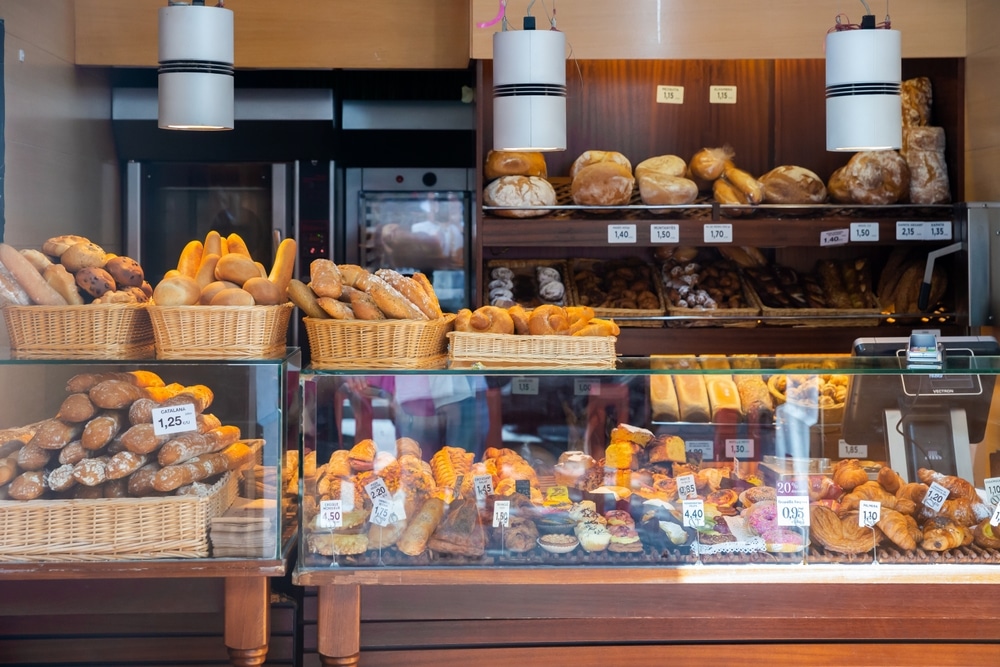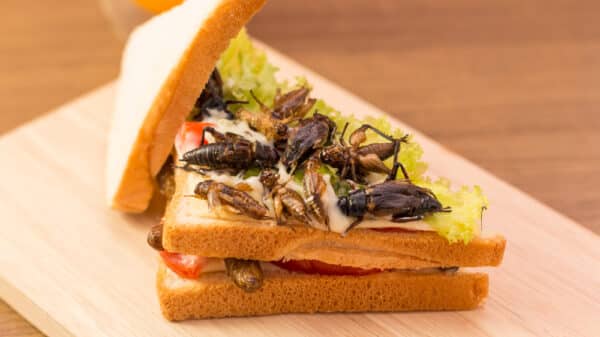When you stroll down the bakery aisle of your local grocery store, picking out cookies, cakes, or maybe some decadent brownies can feel like a little slice of heaven. It’s no surprise that many of us indulge in these sweet delights, especially as studies show that over half of Americans treat themselves to baked goods regularly, with about 40% eating cookies or cakes at least once a week. However, it’s crucial to remember that excitement can quickly turn sour when your beloved bakery item comes with an unexpected surprise—like harmful substances that don’t belong, including hidden allergens, rampant bacteria, or even bits of foreign materials like metal or plastic.
This isn’t a far-fetched concern; it’s something that has occurred more often than you might think, affecting not only desserts but also savory goods such as sourdough breads and hot dog buns. That’s why staying updated on food recalls is essential for any conscious consumer. Brands and retailers generally act quickly to remove tainted items from shelves to mitigate risks of injury or illness. To illustrate just how serious these issues can be, we’ve compiled some of the most significant grocery store bakery recalls in U.S. history—after all, being informed is one of the best ways to protect yourself and your family.
2 Million Cases of Donuts Recalled: A Sweet Treat Turned Sour (2025)
For many, sinking your teeth into a donut is a moment of joy. Sadly, even this seemingly innocent treat can have its risks. In January 2025, the Canadian company FGF found itself in a predicament, needing to recall over 2 million cases of donuts sold at major retailers like Walmart and Publix because they may have been tainted with listeria, a harmful bacteria that can cause an infection known as listeriosis. If you were to contract listeriosis, you could face unpleasant symptoms such as fever, chills, vomiting, and diarrhea.
Fortunately, there was no direct evidence that the donuts available in stores contained listeria; the recall was more of a proactive measure after traces of the bacteria were discovered in one of FGF’s production facilities. It’s a reminder that while the doughnut aisle might be enticing, we must stay vigilant about what we’re putting into our bodies.
Plastic in Your Sourdough? Not What You Signed Up For (2024)
While the ancient Egyptians celebrated bread-making without the fear of finding plastic in their loaves, Aldi shoppers faced that reality in August 2024. The Izzio Artisan Bakery had to pull 9,500 cases of Mixed Sourdough loaves from shelves across several states, with fears that they may have contained unexpected plastic fragments.
The situation quickly escalated as Izzio also recalled additional products, including 600 cases of their Everything Sourdough and 450 cases of Everything Rolls. Customers were urged to toss out the potentially contaminated products or return them for a refund. As none of us want to experience a crunch that isn’t supposed to be there, it’s a good reminder that sometimes, even our favorite baked goods can come with unwelcome surprises—likely due to mishaps in packaging or factory equipment, an all-too-common issue as plastic remains the leading culprit in food recalls.
Milk Allergy Alert: A Cookie Catastrophe Strikes (2024)
Dunking cookies are a staple for many, perfect for slipping into a warm cup of tea or coffee. But if you have a milk allergy, those innocent-looking cookies can turn into a ticking time bomb. In 2024, Meijer stores in six states had to pull their chocolate chip dunking cookies from shelves after discovering that the cookies, produced by Too Good Gourmet, contained undeclared milk.
Milk ranks as one of the most prevalent allergens, and having it hidden from the ingredient list can put individuals at serious risk for an allergic reaction, like anaphylaxis. Thankfully, no adverse reactions were reported in this case, but it illustrates the importance of ingredient transparency. We all want to enjoy our treats without dread hanging over us.
Chocolate Chip Muffins Cause Concerns Over Allergies (2024)
Let’s face it: chocolate chip muffins are pure nostalgia. They often remind us of cozy mornings and comforting rituals. Unfortunately, in 2024, over 11,800 cases of chocolate chip muffins faced a recall due to potential allergy concerns. These muffins, widely loved for their rich flavor, were pulled from stores amid fears of cross-contamination with allergenic ingredients that weren’t properly labeled.
For families with allergy sufferers, such issues aren’t just inconvenience but major health concerns. It’s a reminder that brands must be diligent and transparent about what goes into their products. We can all agree that enjoying a muffin should be a delightful experience, not a gamble on our well-being.
As consumers, we can’t let our love for baked goods overshadow our health and safety. Stay informed and stay safe, because knowing what’s in your food is just as important as enjoying it.
There are nine common allergens recognized in the U.S., which include milk, eggs, fish, shellfish, tree nuts, peanuts, wheat, soybeans, and sesame. It’s crucial for the safety of millions that these allergens are clearly listed on product labels, as allergic reactions can range from mild discomfort to severe, life-threatening situations. Unfortunately, as highlighted in the Meijer cookies incident, that’s not always the case.
In the same year that Meijer issued its recall, FGF Brands Inc. also had to take action, recalling over 11,800 cases of chocolate chip muffins sold at Aldi stores across the U.S. The issue? These muffins contained walnuts, a type of tree nut, which wasn’t mentioned on the packaging. This oversight was attributed to a temporary glitch in the company’s packaging process. To ensure safety, regulators stopped production of the muffins until the problem was resolved. Thankfully, even though tree nut allergies affect about 1% of the U.S. population, there were no reports of adverse reactions due to this error. All consumers who had purchased the muffins were advised to return them for a full refund – a reasonable precaution given the circumstances.
Switching gears to a recent incident in 2023, Walmart faced a recall related to one of its cake products. This time, the mix-up originated from a supplier, David’s Cookies. Walmart received nearly 1,000 units of Marketside Chocolate Chip Explosion Cakes, but these cakes didn’t contain chocolate chip at all. Instead, they were filled with Marketside Ultimate Peanut Butter Chocolate Cake, creating a potential health risk for those with peanut allergies. Thus, David’s Cookies promptly recalled all units to keep their customers safe. Fortunately, no allergic reactions were reported. However, it’s important to note that anyone can develop an allergy at any point in their life, including to peanuts. So, those who bought the cake were encouraged to return it to Walmart for a refund, a wise move to avoid any accidental consumption.
In 2022, H-E-B had its own alarming recall when brownie bites sold at its stores, including Joe V’s Smart Shops, potentially contained pieces of metal. This contamination likely occurred at an outside supplier’s facility, where machinery issues could have introduced the foreign material into the product. Metal in food can cause serious injuries, from minor mouth cuts to potential need for surgical intervention if ingested. Thankfully, prior to the recall, there were only two reported complaints of metal found in the brownie bites. Customers were advised to discard or return the affected items for a refund, prioritizing their safety.
Kroger, another major grocery retailer, has also faced recalls due to various safety concerns, including metal contamination. In 2021, they pulled baked goods from their Country Oven brand, like cinnamon rolls and fudge cakes, from 29 states amidst fears of the products containing metal fragments linked to a starch ingredient. This was not Kroger’s first brush with such issues; previously, in 2019, the store recalled Tyson chicken strips due to similar contamination concerns, highlighting that food safety is an ongoing battle for retailers.
Lastly, Walmart found itself in hot water again in 2021, this time over a Chocolate Candy Cookie Cake produced by Jimmy’s Cookies, which was missing a critical allergen warning for peanuts. This recall affected stores in 23 states; being unaware of an allergen can lead to serious health risks, including anaphylaxis. Fortunately, there were no allergic reactions reported, but the swift recall served as a protective measure for consumers.
Food recalls, while unsettling, play a crucial role in maintaining our safety. Each of these incidents underscores the importance of vigilance from manufacturers, retailers, and consumers alike. By staying informed and advocating for clear labeling and swift action when problems arise, we can better navigate these potential hazards.In a world where we often turn to our favorite grocery stores for comfort and convenience, it’s unsettling when popular products are recalled due to safety concerns. Just think about it: you pick up a batch of delicious cakes or the perfect burger buns, only to later hear that they might pose a risk. It’s a reminder of how quickly things can change, and how vigilance in food safety is critical.
Take, for example, the major recall in 2019 involving Flowers Foods Inc. The company had to yank hot dog and burger buns off the shelves of stores across 18 states, including big names like Walmart and 7-Eleven. The culprit? Contamination with hard plastic pieces. Imagine biting into a burger and suddenly feeling a sharp object—yikes! No wonder the authorities urged customers to either throw the buns away or return them for a full refund. Thankfully, there were no injuries reported, but it serves as an important reminder to check your pantry for any affected products.
It’s not just buns that have faced recalls. Fast forward to 2018, when Swiss rolls—those delightful desserts we often associate with childhood nostalgia—were pulled from Walmart and H-E-B after potential salmonella contamination was detected. While that soft, sweet treat might bring back happy memories, the reality is that eating contaminated food can lead to serious health issues, like stomach cramps or even more severe illnesses. The recall affected various brands, including Baker’s Treat. Even without a reported case of illness, the worry of potentially ingesting harmful bacteria can be enough to make anyone think twice before reaching for another Swiss roll.
Similarly, Trader Joe’s, beloved by many for its unique offerings, faced a challenge in 2018 with a recall of chocolate chip cookies. A simple packaging error led to peanut butter cookies being mistakenly packaged as regular chocolate chip cookies, posing a risk for those with peanut allergies. Can you imagine mistaking a sweet treat for something that could put your health at risk? Thankfully, the incident was handled promptly, and while no allergic reactions were reported, it underscores the critical importance of clear labeling and accurate packaging in our food supply.
Even Publix had its share of recalls, with apple coffee cakes recalled in 2016 due to fears of metal contamination. It’s shocking to think that something so innocuous could pose a risk. Customers were instructed to return the cakes for a refund, illustrating how important it is for stores to take immediate action in such situations. While the source of the metal shavings was not confirmed, it’s distressing to think that broken equipment could jeopardize the safety of our food.
These incidents highlight a broader narrative about consumer trust and the responsibility of grocery stores to ensure our safety. Each recall triggers ripples of concern—not just for those directly affected, but for all of us who regularly fill our carts with bakery items or comforting snacks. It’s crucial to stay informed and take proactive measures, whether that means double-checking our purchases or keeping an eye out for recall notices.
When you head to the grocery store next, remember that even your favorite treats can sometimes come with hidden risks. Stay aware, stay vigilant, and don’t hesitate to act if something doesn’t feel right. You’re not just a consumer; you’re a key player in the cycle of food safety.In 2015, Bimbo Bakeries USA faced a troubling situation when they learned that some of their bread products contained an unexpected and dangerous ingredient—broken glass. This alarming discovery led to a wide-scale recall of various brands from stores across 11 states, including popular grocery chains like Kroger, Aldi, and Walmart. The affected brands spanned from Kroger’s private label to Walmart’s Great Value, along with well-loved names like Sara Lee and Nature’s Harvest.
For anyone who has ever bitten into a piece of bread, the thought of encountering sharp glass is not just frightening; it’s potentially life-threatening. Consuming broken glass can cause severe oral and internal injuries, which in extreme cases might necessitate surgical intervention to remove the shards. Thankfully, in this incident, although multiple consumers raised concerns, no injuries were reported. It’s a relief, but it raises an important question: how does something like this happen? It turns out that the culprit was likely a broken lightbulb in one of Bimbo’s processing facilities, highlighting the unexpected risks that can arise in food production.
Just two years prior, Bimbo faced another recall—this time due to pieces of flexible wire mesh found in its bread products. This recall, initiated in 2013, affected numerous bread brands available nationwide, including Arnold, Brownberry, and, of course, Aldi’s L’oven Fresh. The affected products were actually already in the homes of consumers, not just sitting on store shelves. This added a layer of urgency, as the company urged customers to check their pantry and return any potentially dangerous items. Here, the source of the contamination was a broken wire screen at one of Bimbo’s flour suppliers. Much like broken glass, wire can cause serious injuries if consumed.
In 2007, Sara Lee had its own struggle with food safety when it had to pull 27 whole wheat bread products off the shelves in eight states, including its private label sold in Publix. This recall stemmed from fears of metal contamination, once again traceable to flawed machinery. In this case, a sifting screen used in flour production had broken, raising alarms about the safety of their bread.
These incidents serve as stark reminders of the importance of vigilance in food production and processing. Food safety is no small matter, and the challenges faced by major companies, like Bimbo and Sara Lee, often trickle down to affect everyday consumers like you and me. When we savor a slice of bread, we assume it’s just that—pure, wholesome bread. But these recalls reveal a complex web of safety checks that, if disrupted, can have real consequences.
So, the next time you pick up a loaf from the store, remember the dedication and effort that goes into keeping our food safe, but also stay aware of any recalls or safety notices that may arise. It’s a community effort to ensure that our food remains safe, and being informed is the first step in protecting ourselves and our families.
Image Source: BearFotos / Shutterstock































